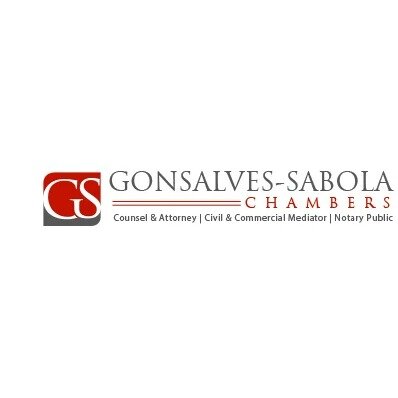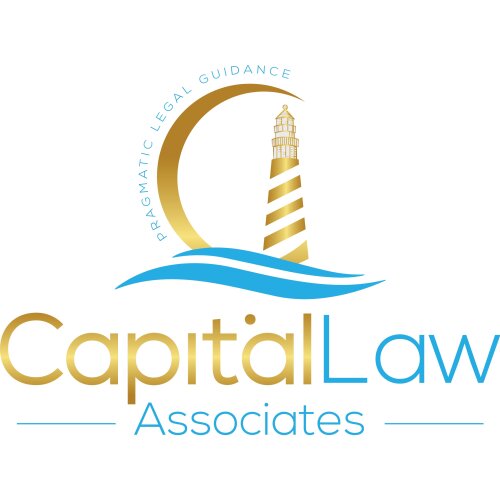Best Adoption Lawyers in Nassau
Share your needs with us, get contacted by law firms.
Free. Takes 2 min.
Free Guide to Hiring a Family Lawyer
List of the best lawyers in Nassau, Bahamas
About Adoption Law in Nassau, Bahamas
Adoption law in Nassau, Bahamas, is primarily governed by the Adoption of Children Act, which provides the legal framework for domestic and intercountry adoption. The process is designed to ensure the welfare and best interests of the child are paramount. The act outlines eligibility criteria for adoptive parents, the procedures to be followed, and the rights of all parties involved. As a part of the Commonwealth, Bahamian law reflects principles that are a hybrid of the English common law system and local statutes.
Why You May Need a Lawyer
Legal advice is often sought in the following situations:
- Understanding the complex legal procedures and requirements for adoption.
- Assistance in completing and filing necessary legal documentation.
- Navigating the legal aspects of international adoption, which can involve both Bahamian law and foreign adoption laws.
- Attending to any disputes that may arise during the adoption process, such as custody issues or challenges to the adoption.
- Legal representation in court proceedings related to adoption.
Local Laws Overview
The Adoption of Children Act dictates that adoptions in Nassau must be processed through the courts. Prospective adoptive parents must be over the age of 25 and at least 21 years older than the child they wish to adopt. Single individuals can adopt; however, a single male cannot adopt a female child unless there are special circumstances justifying the adoption.
Other important legal points include:
- The requirement for an adoption agency or the Department of Social Services to assess the suitability of adoptive parents.
- Mandatory consent procedures where biological parents must consent to the adoption unless their rights have been legally terminated.
- The court's discretion to dispense with the biological parents' consent in certain circumstances.
- The provision of post-adoption support and follow-up by the Department of Social Services.
Frequently Asked Questions
Can foreigners adopt a child from Nassau?
Yes, foreigners can adopt a child from Nassau; however, they must meet specific requirements and follow the legal procedures set by Bahamian law as well as their home country's regulations regarding international adoption.
Is it possible to adopt a newborn?
It is possible to adopt a newborn, but it is subject to the birth parents giving valid consent and the court's consideration of the best interests of the child.
How long does the adoption process take in Nassau?
The adoption process duration can vary widely based on individual circumstances, including the availability of children for adoption and the legal complexity of each case. Generally, it could take several months to a year or more.
What are the costs associated with adopting a child?
Costs may include legal fees, court fees, and any required payments for home studies and post-adoption support services. These vary on a case-by-case basis.
Do we need to be residents of Nassau to adopt?
Non-residents can adopt in Nassau, but they must comply with local laws as well as the Hague Convention if it applies to their home country.
What is the role of the Department of Social Services in the adoption process?
The Department of Social Services conducts home studies, provides counseling, and offers post-adoption follow-up services to ensure the child's continuing welfare.
Can the biological parents reclaim the child after adoption?
Once an adoption order has been granted by the court, the biological parents cannot reclaim the child. The adopted child becomes the legal child of the adoptive parents, with all rights and responsibilities transferring to them.
How can a birth parent give up their child for adoption?
A birth parent wishing to give up a child for adoption must provide consent in the prescribed manner or have their rights terminated by the court under specific circumstances outlined in the law.
Are open adoptions allowed in Nassau?
While not specifically addressed in the legislation, open adoptions may be arranged by agreement between the biological and adoptive parents; however, they are not legally enforceable unless incorporated into the adoption order.
What rights does an adopted child have?
An adopted child has the same rights as a biological child in Nassau, including the right to inherit and the right to be provided for by the adoptive parents.
Additional Resources
For those seeking more information or practical guidance on adoption, the following resources can be helpful:
- The Department of Social Services, which handles matters of child welfare and adoption.
- The Child Protection Unit, which can provide assistance and guidance regarding child adoption procedures.
- Accredited adoption agencies that offer pre-adoption and post-adoption services.
Next Steps
If you are considering adoption in Nassau and require legal assistance, the next steps would include:
- Consulting with a lawyer who specializes in family and adoption law to understand your rights and responsibilities.
- Gathering the necessary personal documents and information required to proceed with an adoption application.
- Contacting the Department of Social Services or an accredited adoption agency to begin the home study process.
- Working with your lawyer to navigate the legal process, complete applications, and file paperwork with the appropriate authorities.
Understanding and completing the adoption process can be complex, but with the right assistance and guidance, it can be a smooth and fulfilling journey.
Lawzana helps you find the best lawyers and law firms in Nassau through a curated and pre-screened list of qualified legal professionals. Our platform offers rankings and detailed profiles of attorneys and law firms, allowing you to compare based on practice areas, including Adoption, experience, and client feedback.
Each profile includes a description of the firm's areas of practice, client reviews, team members and partners, year of establishment, spoken languages, office locations, contact information, social media presence, and any published articles or resources. Most firms on our platform speak English and are experienced in both local and international legal matters.
Get a quote from top-rated law firms in Nassau, Bahamas — quickly, securely, and without unnecessary hassle.
Disclaimer:
The information provided on this page is for general informational purposes only and does not constitute legal advice. While we strive to ensure the accuracy and relevance of the content, legal information may change over time, and interpretations of the law can vary. You should always consult with a qualified legal professional for advice specific to your situation.
We disclaim all liability for actions taken or not taken based on the content of this page. If you believe any information is incorrect or outdated, please contact us, and we will review and update it where appropriate.














